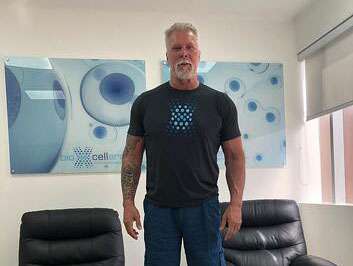
One of the biggest challenges facing patients with Crohn’s disease is its effect on their quality of life. This chronic condition causes inflammation in the digestive tract, leading to symptoms like abdominal pain, cramping, and frequent diarrhea. Patients also often experience a general sense of weakness and fatigue as a result of their ongoing illness. In addition, many individuals struggle with mental health issues such as anxiety or depression due to the stress and isolation caused by Crohn’s.
Perianal fistulas are thought to affect anywhere from 5% to 40% of all patients with Crohn’s disease. These fistulas occur when tunnels form in the tissues surrounding the anus, typically as a result of the chronic inflammation that is associated with IBD. The formation of these fistulas can cause significant pain, discomfort, and even bleeding, as well as other symptoms such as drainage and swelling.
Although there is no cure for perianal fistulas, treatment options do exist that may be able to provide relief from these troublesome symptoms. These include medications that can reduce inflammation, antibiotics to address infection and drainage issues, and even surgery in some severe cases.
Medical and surgical therapies may help to address the root causes of these fistulas and improve symptoms, they often do not lead to full closure of the affected area. This is due in part to the complex nature of perianal fistulas, which involve interactions between surrounding soft tissues and the intestinal tract.
Luckily, recent advances in stem cell technology have brought new hope for those suffering from perianal fistulas. Stem cells are extracted from umbilical cords or adipose tissue, typically by a surgical procedure called liposuction. Once these stem cells are isolated and grown in culture, they can be injected directly into the affected area to promote healing and regeneration of damaged tissue.
In addition, because stem cells contain natural growth factors and anti-inflammatory properties, they can help to reduce inflammation associated with Crohn’s disease and other inflammatory conditions that contribute to perianal fistulas. A series of case studies, Allogeneic expanded adipose-derived mesenchymal stem cell therapy for perianal fistulas in Crohn’s disease: A case series, looked into the potential of stem cell therapy to treat perianal fistulas.
Results of the Case Studies
A team of researchers at a leading medical center has been engaged in a study of complex perianal fistulas, focusing specifically on the use of stem cell injections as a treatment option. Between February 2019 and June 2020, a total of 11 patients with CD were treated using this approach.
In each case, 60 million stem cells were injected around the internal opening of the fistula as well as into tissue close to the external fistula tract and opening. The researchers assessed the fistula closure rate 1, 2, 4, 6, 12, 26, and 52 weeks after receiving the treatment. The results of the case studies were promising and showcased how this treatment could be used in the real world.
After a long follow-up period, it was found that nearly three-quarters of the patients in the study had successfully healed their fistula using MSC treatment. This improvement could be observed as early as 4-6 weeks postoperatively in half of these patients. All patients experienced rapid improvement in symptoms and wound secretions stopped after a few days.
On the other hand, approximately one-third of patients were affected by perianal abscesses, which required drainage. Despite these setbacks, it is clear that MSC treatment is an effective way to treat difficult-to-heal fistulae, offering hope to those with this condition. According to the data, local MSC administration is a viable and effective approach for treating complex perianal fistulas.
Despite logistical and financial constraints, this innovative treatment has been shown to be as effective as traditional approaches and is well-suited to the unique needs of this challenging patient population. With its ability to promote healing at the site of the fistula without requiring the use of surgery or external medications, local MSC administration offers real hope for those struggling with complicated perianal fistulas.
So while there may be several hurdles along the way, adequate research shows that local MSC administration is more than up to the challenge of successfully treating these difficult disorders. Indeed, this new modality in wound care may represent one of the most exciting developments in modern medicine. Ultimately, with proper care and support, complete healing is possible through this approach.

